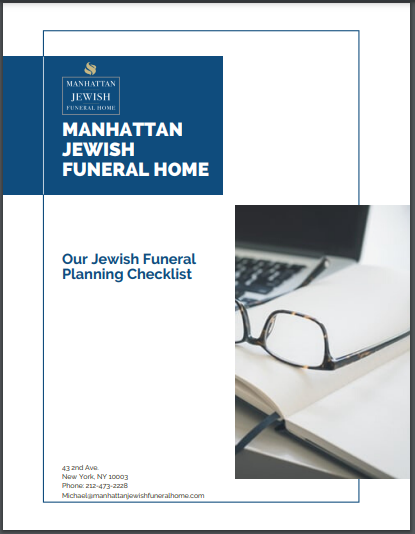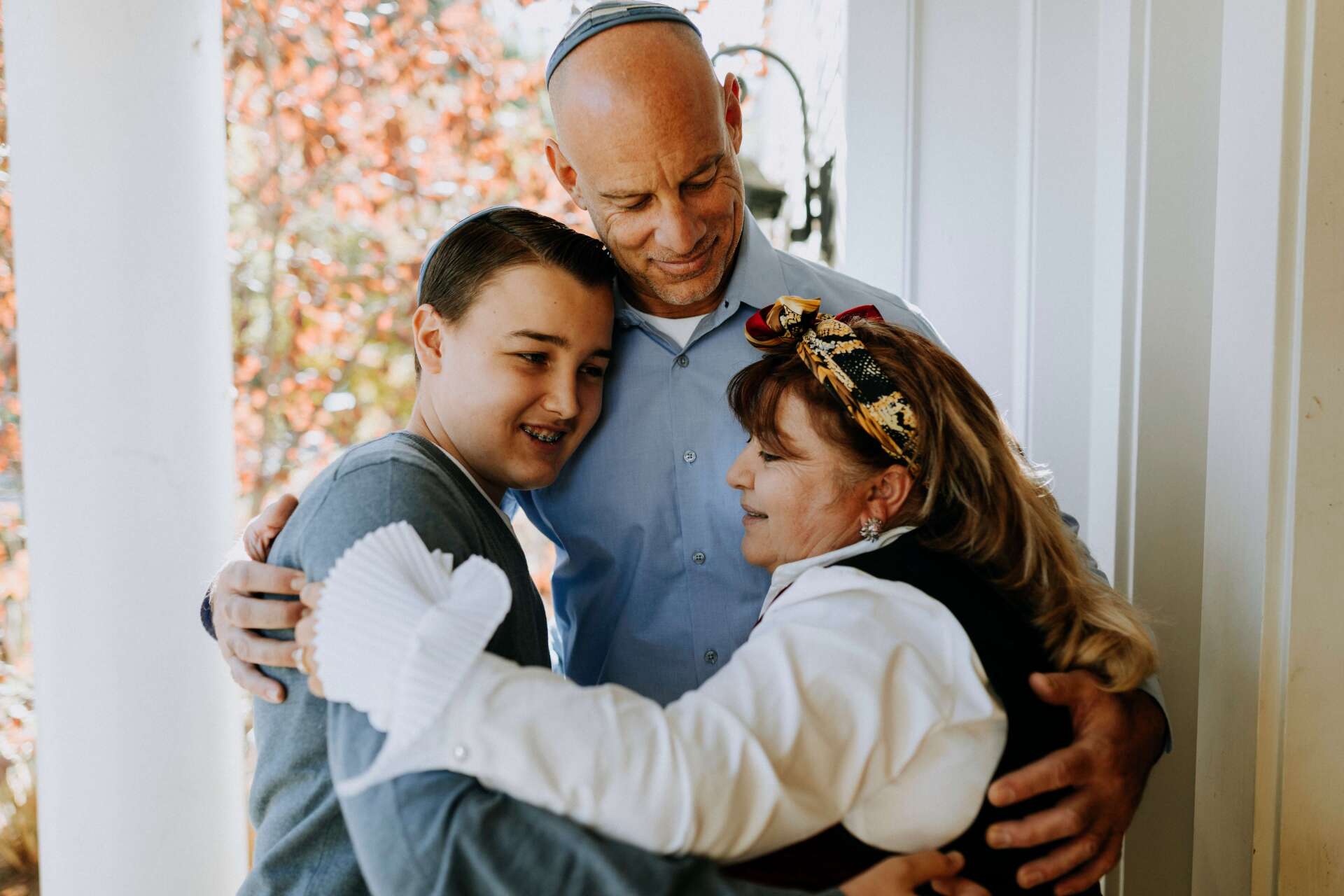Download Our FREEPlanning a Jewish Funeral Checklist

Do
Thank you for your interest in our Jewish Funeral Planning Checklist. You will now be redirected to the download page.
Please try again later.
How to Plan for a Jewish Funeral
After losing a loved one, a Jewish family must prepare for the funeral. The problem that faces many individuals – especially the younger generations, seen as less religious – is how to plan a Jewish funeral and follow all Jewish customs appropriately. Because let's face it. The Jewish faith has so many customs and beliefs. Hence, being able to plan a traditional Jewish funeral and knowing all the requirements within a short time is almost impossible. Therefore, what requirements should families know if they choose to do a Jewish funeral traditionally? Here's a simplified guide highlighting everything you need to know about how to plan a Jewish funeral and traditions to keep in mind leading up to the planning process. Then, once you feel ready to start the Jewish funeral planning process, please download our checklist. To do so, simply add your name and email to the contact form above, and click proceed to download to get your FREE copy of our Planning a Jewish Funeral Checklist.
Before Starting the Jewish Funeral Planning Process:
9 Traditions & Customs to Keep in Mind

Burial or Cremation - What to Choose?
Although cremation has become widespread among some Jewish families, traditional burial is the most preferred according to Jewish law. They believe that the body should go back to the earth – where it came from – whole, as written in Genesis / Bereshit 3:19, “For dust you are, and to dust you shall return.”
On the other hand, if the departed preferred cremation, some Jewish Rabbis don’t mind conducting the funeral. However, they won’t be at the crematorium.
Bury Your Loved One as Soon as Possible
Traditional Jewish funerals typically take place on the same day of death or within 24 hours from the time of death. Families do this per the Torah and to honor and respect the deceased.
However, with family members and friends living far apart from each other nowadays, sometimes it can be challenging to do the burial immediately. So, you must wait for the mourners to arrive and then hold the ceremony. In this case – where a delay is inevitable, ensure that you bury your loved one as soon as possible when everyone that needs to be there arrives.
Refrigerate the Body but Don’t Embalm it
According to Jewish customs, embalming or applying cosmetics to a dead body humiliates the deceased and the image of God. Therefore, a family planning a Jewish funeral should strive to bury their loved one without injecting chemicals into their body.
You can only embalm the body in case you need to delay the funeral or if you need to transport the body over a long distance for sanitary purposes.
The Casket Should be Simple & Made of Wood Only
Usually, Jewish caskets are simple. They shouldn’t contain metal components such as nails, screws, or metallic handles. Traditionally, individuals that practice this believe that using such a simple casket allows the body to decompose naturally and return to the earth easily. It also ensures the family doesn’t overspend when mourning their loved one.
Besides, they believe that using metal caskets or components prevents decomposition.
Don’t Dress the Deceased with Fancy Clothes – Stay Simple
In many cultures around the world, dressing the deceased in fancy clothes or attires they loved is a sign of respect and love towards them. But this is not the case with the Jewish culture.
Traditionally, the Jewish custom doesn’t allow family members to bury their loved ones with such clothes. Instead, you should bury them with a shroud - a simple, plain white linen that symbolizes purity and equality before God. The shroud shouldn’t have any pocket since you won’t take worldly possessions with you.
You Need to Hire a ‘Shomer’ or Watchman
According to Jewish beliefs, the deceased shouldn’t be alone at any time before burial. Hence, families usually hire a shomer to keep watch of the departed until the burial date. The shomer/watchman will recite prayers and Psalms as he watches over the body. Shomers also take the burden of having to do this at a time when they should be mourning.
In some cases, you might not need to hire one. Instead, you can get volunteers from the synagogue that your loved one attended.
Reach out to a Chevra Kadisha
The Chevra Kadisha consists of a group of Jewish people (or a Jewish burial society) whose primary role is to help the family prepare the body for burial. Additionally, these people will ensure that you follow all the strict requirements, recite traditional prayers, and read the psalms.
If you live in an area where you can access a Chevra Kaddisha, be sure to do so. They’ll take some of the burdens off your shoulders since they’ll help you prepare a traditional funeral according to Jewish customs.
What Happens After the Funeral?
17 Things to do After the Funeral Infographic
After the funeral, grieving friends and loved ones of the deceased often ask us, "What's next?" Download our infographic to learn the 17 things you must do after the funeral.
Why Families Put Their Trust In
Manhattan Jewish Funeral Home
Kind Words

Pricing was reasonable and Michael was very friendly. He got back to me every time I had a question. I would highly recommend them.
Gina
Fast, incredibly efficient (did everything electronically and took care of everything for us), clear explanations, caring and compassionate, no high pressure sales pitches. Everything one would want from a funeral service company.
Jeanne
Slide title
Michael was responsive and professional. We are so appreciative for everything that he did to make this difficult time a bit easier on us. Thank you to Michael and the team!
Erica
Slide title
I worked with Michael and the whole experience was seamless. I lost my father due to COVID and Michael made this horrible loss more manageable by making my father's end of life process so smooth. Their response is amazing even during this time of crisis. I would highly recommend their services. They treat you like family.
Leah



